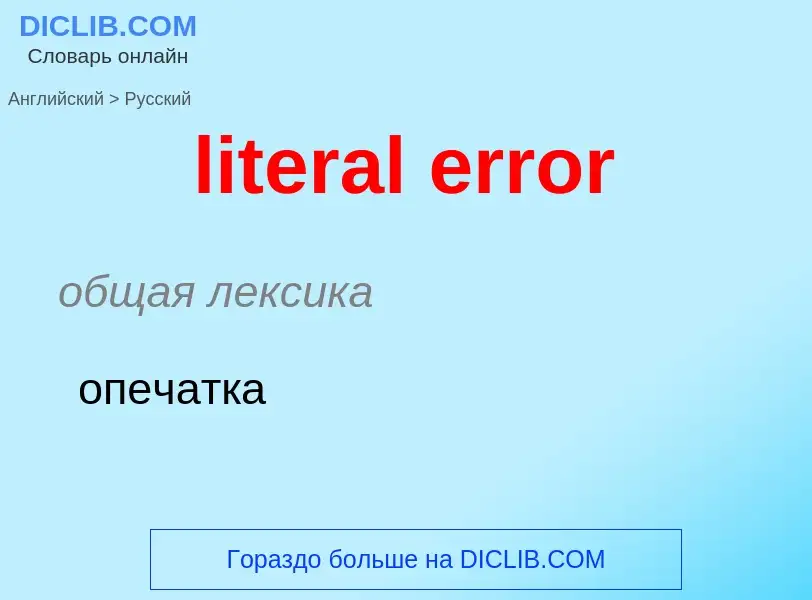Translation and analysis of words by ChatGPT artificial intelligence
On this page you can get a detailed analysis of a word or phrase, produced by the best artificial intelligence technology to date:
- how the word is used
- frequency of use
- it is used more often in oral or written speech
- word translation options
- usage examples (several phrases with translation)
- etymology
literal error - translation to russian
общая лексика
опечатка
Definition
Ошибка, оговорка, досадный промах (обычно в устной речи и на письме).
Wikipedia
In mathematical logic, a literal is an atomic formula (also known as an atom or prime formula) or its negation. The definition mostly appears in proof theory (of classical logic), e.g. in conjunctive normal form and the method of resolution.
Literals can be divided into two types:
- A positive literal is just an atom (e.g., ).
- A negative literal is the negation of an atom (e.g., ).
The polarity of a literal is positive or negative depending on whether it is a positive or negative literal.
In logics with double negation elimination (where ) the complementary literal or complement of a literal can be defined as the literal corresponding to the negation of . We can write to denote the complementary literal of . More precisely, if then is and if then is . Double negation elimination occurs in classical logics but not in intuitionistic logic.
In the context of a formula in the conjunctive normal form, a literal is pure if the literal's complement does not appear in the formula.
In Boolean functions, each separate occurrence of a variable, either in inverse or uncomplemented form, is a literal. For example, if , and are variables then the expression contains three literals and the expression contains four literals. However, the expression would also be said to contain four literals, because although two of the literals are identical ( appears twice) these qualify as two separate occurrences.

